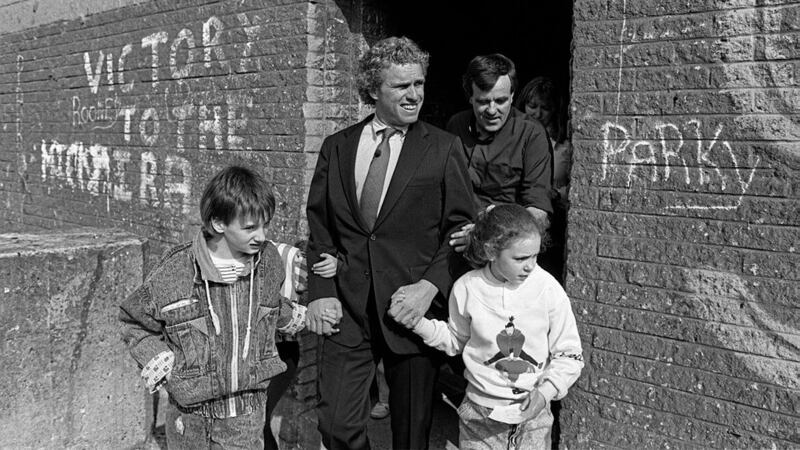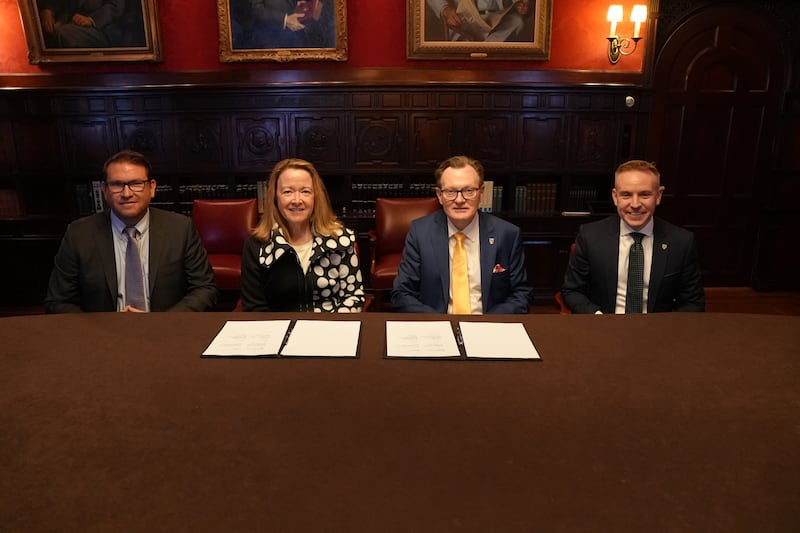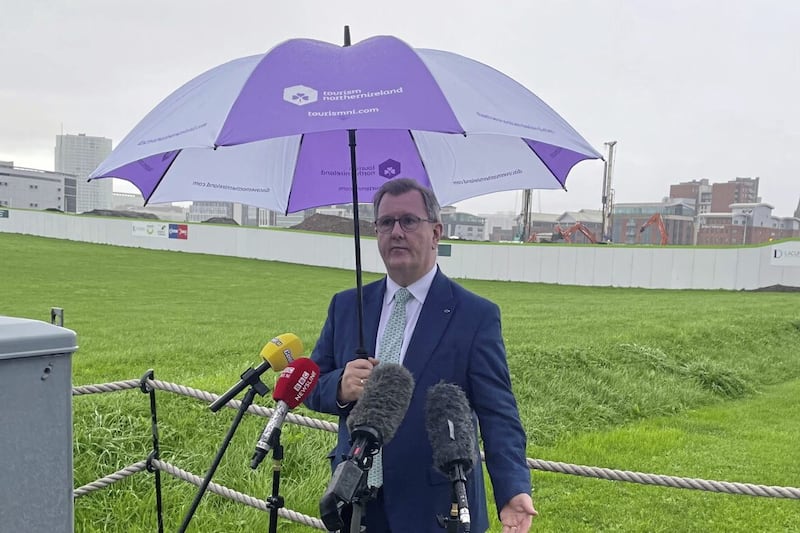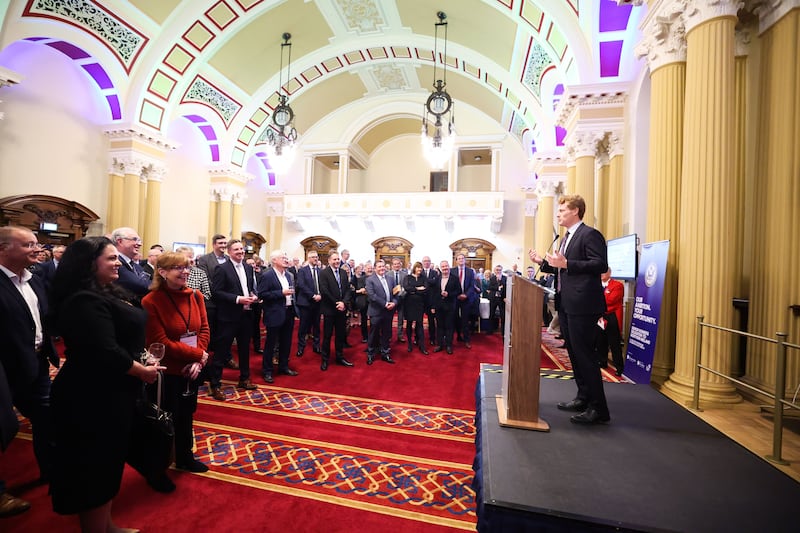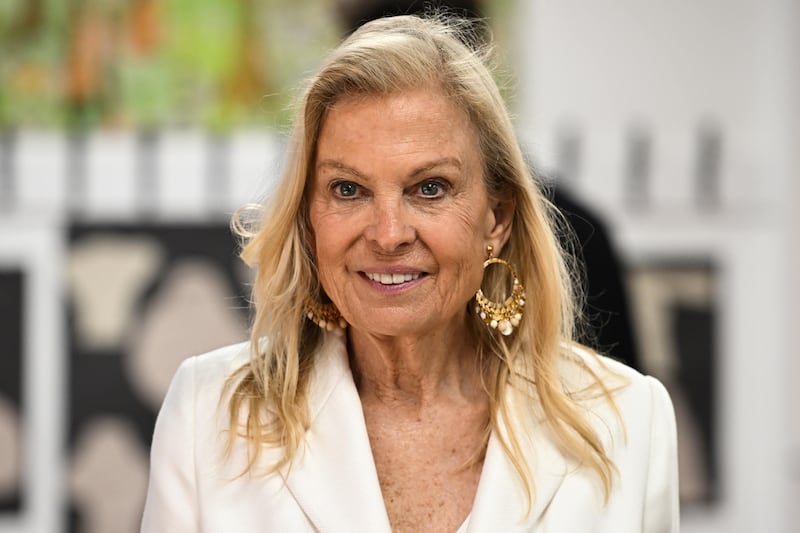WITHOUT the involvement of the US it is questionable whether the Belfast/Good Friday Agreement of 1998 would have been concluded.
We are told that, when the negotiations in Castle Buildings were in their final make-or-break hours, President Bill Clinton was on the phone from Washington to key participants “all during the night” and indeed well into daylight. An assurance from the president of continued US involvement is said to have been one of the main reasons Sinn Féin agreed to the final deal and his contact with unionist leader David Trimble also appears to have been very important.
Others from across the Atlantic who played a constructive role in the peace process famously included former Senator George Mitchell, who chaired the talks with great skill and sensitivity, as well as members of the Kennedy family. As US Ambassador to Ireland, the late Jean Kennedy Smith braved strong criticism when she supported the granting of a US visa to Sinn Féin leader Gerry Adams in 1994, which greatly annoyed the British establishment at the time but was a significant step towards peace.
It seems safe to assume that her grand-nephew, former Congressman Joe Kennedy III, recently appointed as US Special Envoy to Northern Ireland for Economic Affairs, will also be a positive influence. He is apparently not meant to get involved in the Stormont political stalemate but his presence on the scene should make for a better atmosphere overall.
DUP leader Sir Jeffrey Donaldson said the new envoy needed to “take account of unionist views and concerns in relation to the economy”, adding that the Northern Ireland Protocol issue couldn’t be avoided in that context. At time of writing we don’t know if President Biden will be coming to Belfast to celebrate the 25th anniversary of the Agreement. It all presumably depends on whether the protocol issue can be resolved or at least defused to a considerable extent.
The special envoy is a grandson of former US Senator and Attorney General Robert F. Kennedy, who was assassinated during the presidential election campaign of 1968, and a grand-nephew of President John F. Kennedy who had suffered a similar fate five years earlier. He was elected to the US House of Representatives in November 2012 and served for eight years, but did not contest his seat in the 2020 election. Joe Kennedy chose instead to seek the Democratic nomination in Massachusetts for the Senate elections but lost the primary.
His father, also called Joe Kennedy, was himself a congressman for 12 years from 1987 to 1999. On April 5, 1988, he made a fact-finding visit to west Belfast which included the Divis Flats complex off the Falls Road and, when he and his associates were departing that location, their two cars were stopped at a British Army checkpoint. It was reported that, when a clergyman was asked to get out of one of the cars, Kennedy said: “You can’t do that to a priest.” The report continued that one of the soldiers told the congressman to go back to his own country and, when the congressman replied that the soldier should do the same, he was told: “This is ours”. The Young Unionist Council later expressed support for the soldier and described the congressman as “an upstart”. Kennedy told the press afterwards that the incident was callous and an eye-opener: “You don’t curse in front of a Catholic priest.”
The Belfast visit was part of an investigative tour of Ireland, north and south. The schedule was arranged in cooperation with then-SDLP deputy leader Seamus Mallon and included meetings with unionist and nationalist politicians, Alliance Party leader at the time Dr John Alderdice, a dinner at Stormont Castle with Northern Ireland Office Minister Dr Brian Mawhinney, a trip to Derry and tour of the Bogside with SDLP leader John Hume, visits with loyalist and republican inmates at the Maze Prison and talks in Armagh with the Catholic and Church of Ireland primates, followed by a trip to Dublin for a meeting with then-Taoiseach Charles Haughey, and then on to Wexford, the ancestral home of the Kennedys.
The IRA campaign was under way at the time and it was reported that, when asked if he would be meeting anyone from Sinn Féin, Kennedy said: “I expect to be meeting a whole range of individuals from all aspects of political life." However, he drew the line at a get-together with Sinn Féin, who later expressed criticism of his refusal to meet the party.
The congressman met Official Unionist Party Lord Mayor Dixie Gilmore and his party colleague William Ross MP for 40 minutes at Belfast City Hall but Peter Robinson of the Democratic Unionist Party, who had also been invited, decided not to attend after all and party press officer Sammy Wilson said the DUP would not meet “Joey the republican parrot”.
Later in Dublin, after a lunch in Iveagh House with Taoiseach Charles Haughey, Tánaiste and Minister for Foreign Affairs Brian Lenihan and Fine Gael leader Alan Dukes, the congressman said the US should take a stronger line with Britain on fair employment and the administration of justice in Northern Ireland.
The next stage in Kennedy’s journey was Wexford, his family’s county of origin. The present writer reported in The Irish Times on how he told a crowd of about 400 at an open-air civic reception in Wexford town: “You know as well as I do that the British have no right occupying the North of Ireland.” He said he could not come to the land of his family’s roots and ignore the problems “tearing this nation apart”.
His visit to various locations and the comments he made provoked a degree of fury in the British media that was, in the words of the late Mary Holland, “awesome to behold”. More than three decades later, his son’s northern experience is likely to be calmer and more welcoming: at least one would hope so.
Email: Ddebre1; Twitter: @DdeBreadun
